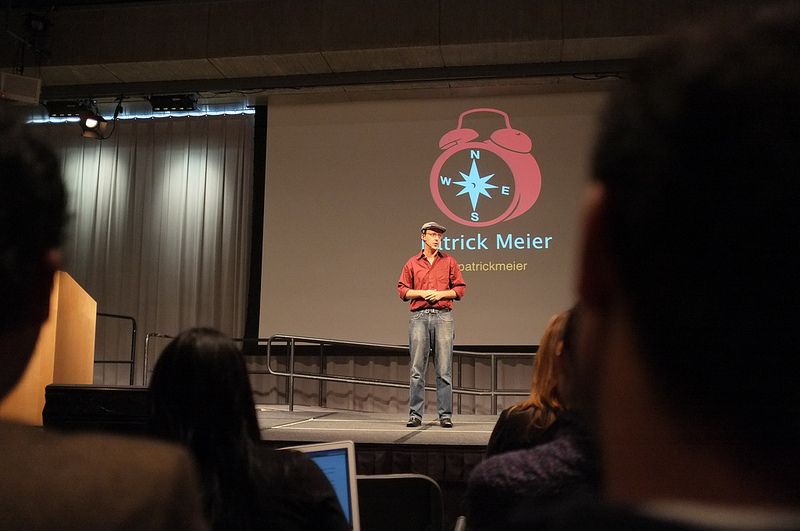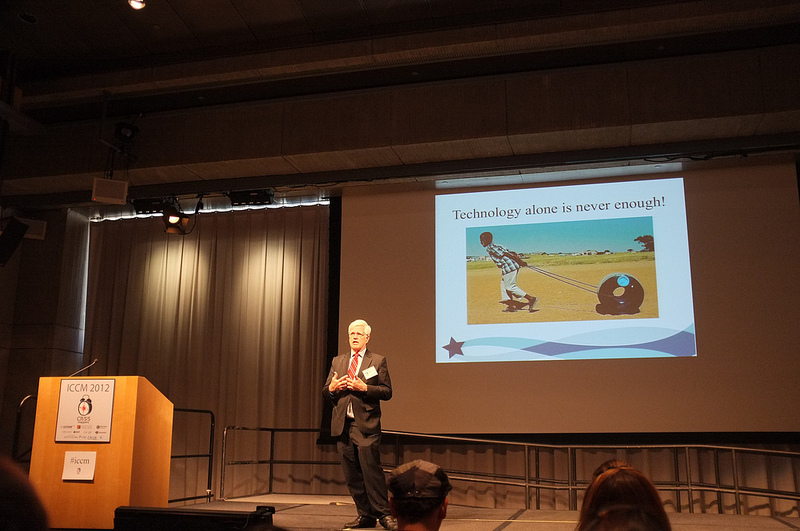The end of the year is now upon us. We just wanted to thank you from the bottom of our hearts and the top of our DC nerd attic for making 2012 our best one yet. Specifically, thanks to your course feedback, content contributions, happy hour attendance, and tuition dollars, we’ve trained over 1,400 participants in 70 countries in how to better use technology for social change.
New Online Courses:
We have expanded on our original set of courses (Emergency Management, Digital Organizing, and Mobiles for International Development) into exciting new spaces. A few courses we’d like to highlight:
- (TC309) Mobile Phones and Public Health: Our largest open enrollment course so far, we were joined by over 100 students in 25 countries. Developed in partnership with the UN Foundation’s mHealth Alliance, we also piloted our new in-course tool simulator for D-Tree!
- USAID Courses on Mobile Money: Through a custom course for 80 USAID mission staff in 7 countries, we’re helping build development capacity in mobile phones. Next up? Turning this course into a self-paced interactive module to scale the program.
- TOL Journalist Training for “Reporting on Education” in E. Europe: Developed in partnership with Transitions Online (TOL), BBC, and The Guardian, we shared our platform with TOL to train 20 journalists over a 2-week period. This was our first course ever with non-TechChange content and external facilitators!
- (TC201) Ushahidi: Frameworks for Effective Platform Management: Expanding on our “Emergency Management” course, we developed this course in partnership with Ushahidi to be a scalable complement to the Universities 4 Ushahidi program (U4U).
- (TC108) Technology, Innovation, and Social Entrepreneurship: Developed in partnership with the Amani Institute, we wanted to not just teach content, but develop more social entrepreneurs to keep pushing the field forward.
Online-Enabled Public Events:
One of our initiatives this year has been to assist our partners in reaching a larger online audience and to start thinking of all public events as online-first. Events include:
- International Conference of Crisis Mappers at the World Bank: We worked together with Crisis Mappers to produce the first livestreaming of ICCM, which led to an additional 950 unique viewers from all over the world!
- Connecting Grassroots to Government at the Wilson Center: Building on our work for empowering Volunteer Technical Communities (VTCs), we took live questions from the online audience during this event. This was one of multiple events at the Wilson Center, which is leading the way in online-enabled events.
- Expert Interviews at the mHealth Summit: Since the webcast was already provided, we focused on capturing expert knowledge from the attendees and partners for the mHealth Alliance. Most fun part? Getting pictures of attendees holding their cell phones to show their personal connection with the device.
Site Upgrades and Added Features:
In addition to a few other handy features, we’ve made a few big technical upgrades to our site in the hopes of improving user experience.
- Launched a new, responsive TechChange.org! We much of 2011 promoting mobile-first design, so it was a relief to build a fully responsive site in 2012. Try re-sizing it in your browser!
- Animating our content voiceovers. We’ve always been big fans of RSA Animate and iheed who produce educational video content, so we tried giving it a go ourselves. What do you think? We’re hoping to do plenty more in 2013.
- Video-for-everyone course design. We switched from Ustream to OpenTok in 2012 to try to not just talk at our classes, but have discussions with you. It’s been a bumpy ride, but we’re working at optimizing for every browser and bandwidth.
Field Training and Workshops:
Tech training cannot be done by Internet alone. Here’s a few cases where we rolled up our sleeves and got to teaching the old fashioned way.
- Simulation and Activation for the Digital Humanitarian Network (DHNet): With the generous support of the ICT4Peace Foundation and in coordination with UN-OCHA, we helped launch DHNet with a simulation around a natural disaster in Samoa.
- Sri Lanka Unites 2012 Future Leaders Conference: We travelled to Sri Lanka for a series of tech workshops and to create a strategy document on tech for organizing. It was a wonderful experience and reminder that technology is no replacement for grassroots mobilizing.
- African Fellows Training in Addis Ababa, Ethiopia: Nothing like a two-week training organized by the UPEACE Africa Program with a supporting grant from IDRC Canada!
Finally, a particular highlight of the past year was the nice story run about us in The Economist. Read the article: Geeks for Good.
We hope to see you online, in person, or in class next year!
Warm regards,
The TechChange Team


